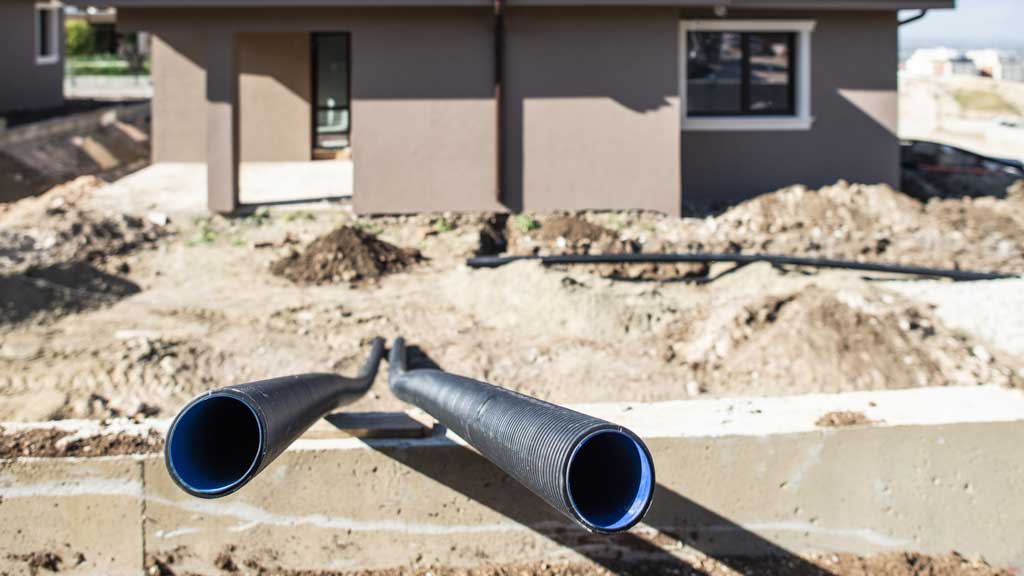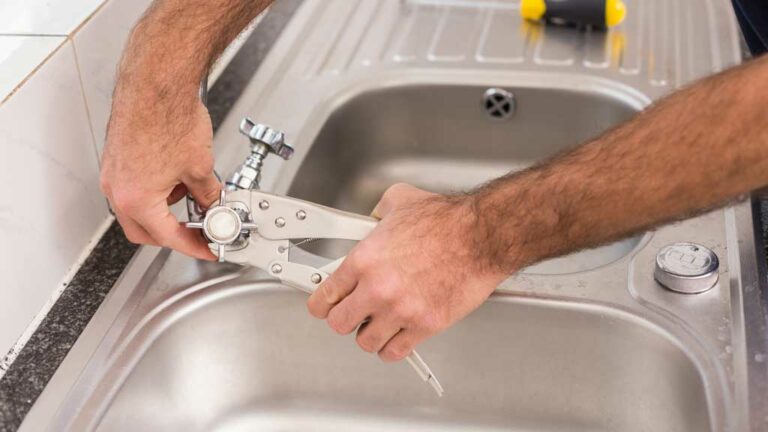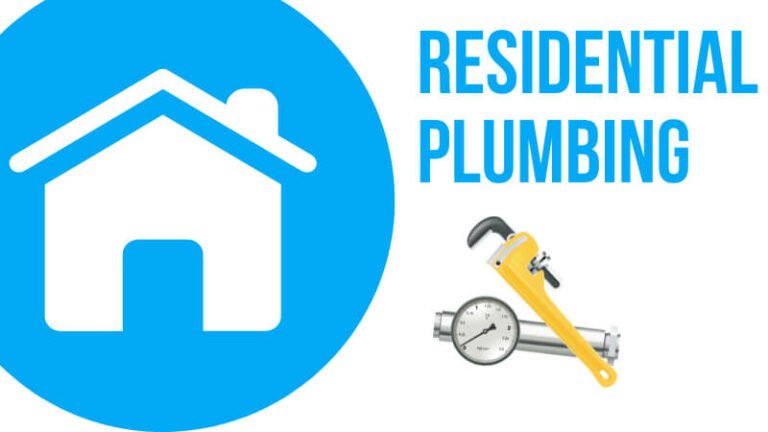Understanding new construction plumbing

Plumbing is an integral part of any construction project, yet it is often overlooked or underestimated. When it comes to new construction plumbing, many of us take for granted the complexity and expertise required to ensure that all components are installed correctly. Understanding the basics of new construction plumbing can be the difference between a successful project and one that is plagued with costly repairs and delays. In this blog post, we will explore the importance of understanding new construction plumbing and provide valuable insight into the processes and materials involved in creating a safe and secure plumbing system.
Residential New Construction
Residential new construction plumbing is a critical part of the entire construction process. From ensuring the project complies with all building codes to the installation of appliances and fixtures, it is essential that the plumbing is done properly and to the highest standards. Quality plumbing is essential for the safety, comfort, and convenience of the people who inhabit the home. Professional plumbers have the knowledge and experience necessary to install the correct pipes, fixtures, and appliances, and to ensure that the system works properly. New construction plumbing can be a complex and involved process, from installing the necessary pipes to connecting and testing the appliances. Plumbers must be familiar with local codes and regulations and can help to ensure that the work is done in compliance with all applicable laws and regulations. Quality plumbing work is essential for the long-term health and comfort of any home, and professional plumbers can provide the expertise needed to ensure that the job is done right.
Plumbing for Large Commercial Buildings
Large commercial buildings come with many unique challenges and complexities, and you want to make sure your plumbing system is designed and installed correctly from day one. It’s important to assess the project needs and determine the type of piping material that best suits them. Some of the more common materials used for new construction plumbing for large commercial buildings include copper, ABS, PVC, PEX, and cast iron. Each material has its own advantages and disadvantages, so it’s important to consult a professional plumber to determine which one is best for your particular project.
The plumbing contractor you hire should also be knowledgeable and experienced in the installation of multiple types of fixtures and appliances. This includes toilets, sinks, showers, bathtubs, water heaters, dishwashers, garbage disposals, and more. Depending on the size and complexity of the project, the right contractor should be able to provide you with a detailed and comprehensive plumbing plan, including both the piping and fixture layout. They should also be able to provide you with a quality assurance plan and provide ongoing support throughout the duration of the project.
With the right contractor in place, you can be sure your commercial plumbing system is installed correctly and is ready for use from day one.
Planning Your Plumbing when Building a New Home
Secure Permits
Secure Permits Before you begin any plumbing project in your home or business, it’s important to secure the proper permits. Permits ensure that the work is done properly and up to code. Failing to secure permits can lead to hefty fines and potential damage to your property.
Plumbing Industry Standards The plumbing industry has its own set of standards that must be met and adhered to. Without proper permits, your plumbing job could violate these standards.
Think About Your Plumbing Needs
It’s important to think about both the short-term and long-term needs of your project. It’s critical to consider the quality of the materials used, the expertise of the plumber, and the cost of the project. When it comes to new construction plumbing, you’ll want to make sure you have the right balance of quality, cost, and expertise.
In terms of selecting the right materials for new construction plumbing, it’s important to consider things like durability, corrosion resistance, and ease of installation.
Finally, it’s important to select a plumber with the right expertise in new construction plumbing. Make sure the plumber has the right certifications, experience, and training to handle your specific project. They should be able to explain the project in detail and provide a quote that fits your budget. With the right plumber, you can rest assured that your project will be done correctly and on time.
Parts and Components
Piping
Piping is a system of plumbing that transfers water, gas, oil, or other fluid substances between two or more points. It is the backbone of many industrial and commercial operations, and it is essential for the functioning of buildings and infrastructure. Piping is often used to transport water, gas, oil, and other fluid substances in a controlled and safe manner.
Sewer Lines
A sewer line is a pipe that carries wastewater from your house to the wastewater treatment plant. Wastewater is dirty water that has been used to wash clothes, dishes, and other things. Wastewater contains things like bacteria, fats, oils, and grease. Sewer lines carry all of this wastewater to the wastewater treatment plant.
Fixtures
Fixtures are the physical objects or equipment that support or are used with a task or activity. A fixture can be a tool, machine, piece of furniture, or other physical object. Fixtures can also be systems, such as a workplace or factory, or entire buildings.
Plumbing Components
The most important and fundamental components are water supply pipes, drain pipes, and ventilation pipes. Water supply pipes are necessary for bringing fresh water into the building, while drain pipes are responsible for carrying wastewater away from the building. Lastly, ventilation pipes are necessary for maintaining proper airflow throughout the entire plumbing system.
In addition to these main components, there are also several other components that are necessary for a functional plumbing system. These components include valves, faucets, toilets, bathtubs, showers, and water heaters. Each of these components must be carefully installed in order to ensure the system is functioning properly. It is also important to use quality materials when constructing the system to ensure it will last for many years to come.
Furthermore, when installing a new construction plumbing system, it is important to adhere to all local codes and regulations.
Shut-Off Valves
A shut-off valve is a valve that is used to shut off a fluid or gas supply. They are used in various industries, including the oil and gas, manufacturing, and plumbing industries. They are also used in water systems, where they are used to shut off the water supply to a household.
Get Professional Assistance with Your New Construction Plumbing
Working with a professional plumber is the best way to achieve your plumbing goals in your new construction or remodeling project.
Why?
It saves you money.
A plumber who knows what he is doing, and how to do it properly, will get the job done much faster than you, and charge less. And when you consider that time is money, that saves you even more.
It ensures quality.
Plumbers don’t need to waste any time trying to figure out how to do the job. They’re not just guessing at his technique. They practiced hundreds of similar jobs before so his methods have been proven to work.
It helps you avoid costly mistakes.
Mistakes can be expensive! And who wants a plumber to come to their home or business, do a poor job, and then charge them more for it? That happens a lot when homeowners try to do their own plumbing.
Conclusion
In conclusion, new construction plumbing is a complex and intricate process that requires a professional and experienced plumber to ensure a successful outcome. The plumbing system will consist of a variety of components and materials, including pipes, fittings, valves, and other essential plumbing fixtures. It is important to consider the size, layout, and materials of the plumbing system when planning a new construction project. Additionally, it is important to evaluate the local building codes, to ensure that the finished product meets all legal requirements. The plumbing system must also be designed to meet the needs of the specific project, and any special requirements must be taken into account. A professional plumber can help ensure all these details are taken care of, so the new construction project can be completed efficiently and successfully.






